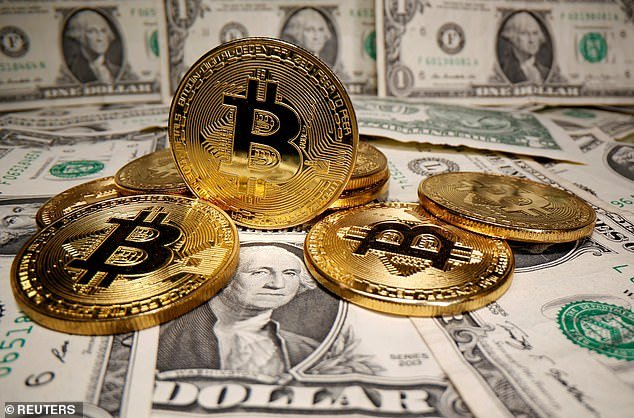Elon Musk’s tweeting sends Bitcoin’s value sinking again – but are there bigger forces responsible for the downturn in crypto prices?
- Musk said last week that Tesla would not accept Bitcoin payments for Tesla cars
- Ethereum, the second-most valuable cryptocurrency, has also declined 17.6%
- The Colonial Pipeline attack could lead to much greater regulation of Bitcoin
Bitcoin’s tumbling price over the last 24 hours marks another downturn for the crypto-currency that is used to experiencing volatile price changes.
Once again, the power of Elon Musk’s tweets prompted the markets to react nervously. In response to a tweet suggesting Tesla had offloaded the rest of its Bitcoin holdings, Musk simply replied: ‘Indeed.’
He later clarified that Tesla had not sold any Bitcoin. Still, the cryptocurrency has taken a significant dive. As of writing, it has fallen 7.6 per cent over the last 24 hours to $45,100.
An Elon Musk tweet caused Bitcoin’s price to fall 7.6 per cent over the last 24 hours to $45,100
But it has also plummeted by more than a fifth in a week and is far off its April peak of around $66,000. Ethereum, the world’s second-most valuable cryptocurrency, has declined 17.6 per cent by comparison.
It not just Musk’s mercurial behaviour to blame for bitcoin’s volatility, but he holds some power over its price, as last week when he announced Tesla would no longer accept payments for its cars using Bitcoin.
The reason he gave was environmental. Bitcoin mining emits a huge amount of carbon, putting it at odds with the electric carmaker’s desire to create a greener automotive industry.
Laith Khalaf, a financial analyst at AJ Bell, said: ‘Bitcoin backers will be wondering where this leaves the future of the cryptocurrency.’
He added: ‘Tesla’s decision certainly puts pressure on other big companies who accept Bitcoin to review their practices, because boardrooms will now be wary about gettig it in the ear from ESG investors on the shareholder register.’
Companies and investors are shopping around for greener alternatives, and one of those has been Cardano, whose value is up a fifth over the last seven days by contrast.

The announcement by Tesla founder Elon Musk (above) last week that the carmaker would not accept Bitcoin as payment for its automobiles sent the value of Bitcoin plunging
According to the currency’s founder Charles Hoskinson, Cardano uses only six gigawatt-hours of energy annually compared to a whopping 115.85 terawatt-hours used by Bitcoin.
Such alternatives could become more popular than other cryptocurrencies if the level of concern about their effect on the planet intensifies.
At the same time, Bitcoin found itself at the centre of a ransomware attack in the United States involving stolen data and a crucial artery of energy infrastructure.
The oil pipeline system Colonial Pipeline transports 45 per cent of all oil consumed on the east coast of the United States and was hit by a cyberattack that resulted in them paying $5million in Bitcoin to hackers, according to Bloomberg.
Such extortion measures could have spooked many investors and businesses into greater caution over Bitcoin. Berkshire Hathaway’s Charlie Munger has himself sworn off it, partially because it is, as he recently said, ‘useful to kidnappers and extortionists.’

According to Bloomberg, Colonial Pipeline, which transports 45 per cent of all oil consumed on the US east coast, paid $5million in Bitcoin to hackers after it was hit by a cyberattack
This attack could also make regulation increasingly likely, says OANDA senior market analyst Jeffrey Halley, a threat that has tended to send the price of Bitcoin declining.
He said such an attack would ‘not go unnoticed by the US government and other countries. I would argue that the regulatory threat to cryptocurrencies has increased exponentially, more so even than big-tech regulation.’
The US Treasury has already proposed rules that would force banks and other financial institutions to report the identities of people engaging in particular digital transactions like Bitcoin trading.
The greater worry is that the whole craze is just one big bubble that eventually collapses, leaving many people heavily out of pocket. Bill Gates has himself predicted Bitcoin will collapse.
The last week’s price movements of Bitcoin could just be down to heat being taken out of the market. It has plunged in value before only to come back stronger and set new records.
‘Bitcoin has been under pressure since the Musk Tweet,’ says Jeffrey Halley, ‘but I would argue that the beginning of the end of the wild-West of crypto-mania is now upon us.’

